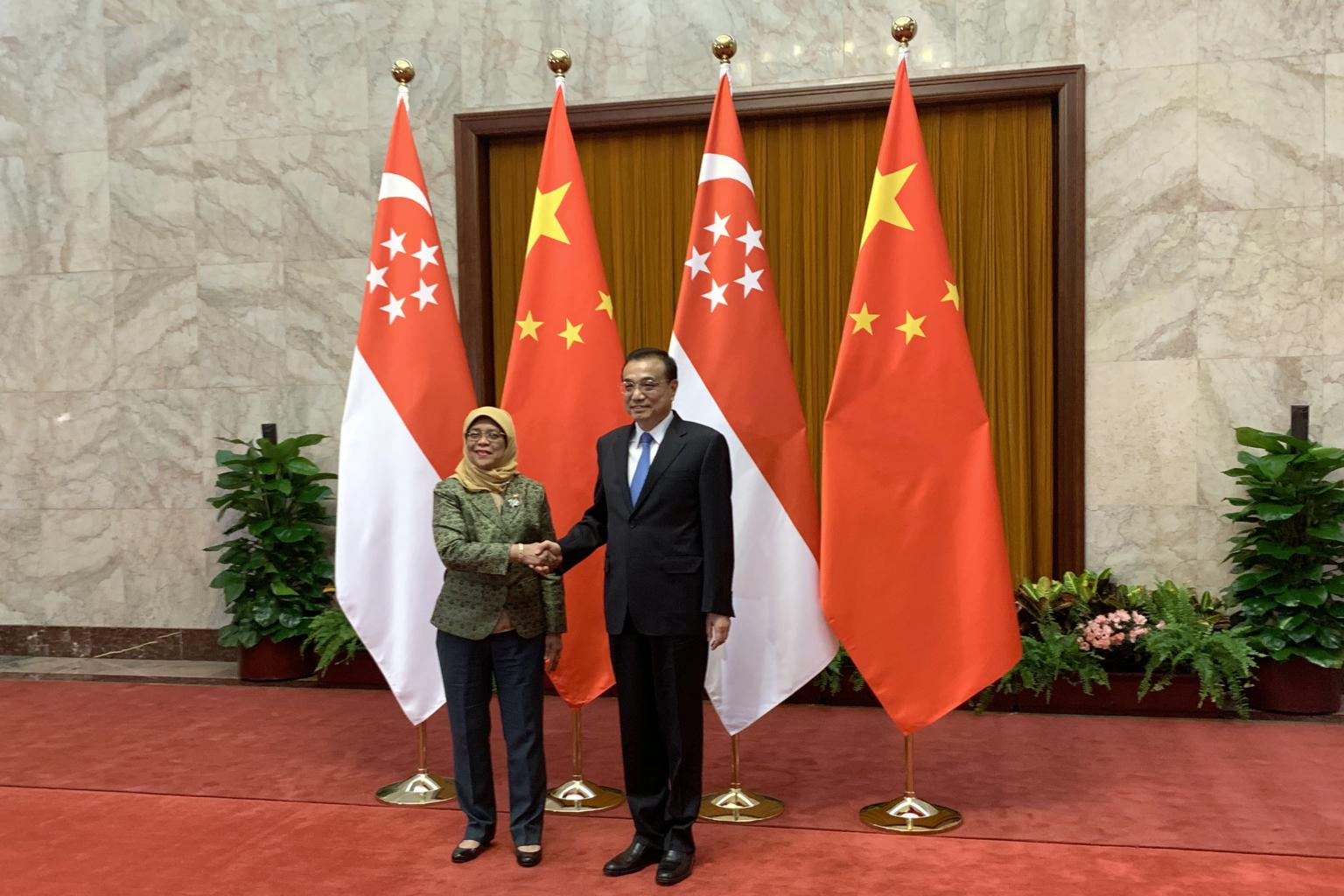Dialogue, not disengagement, is way to tackle globalised world's problems: President Halimah
Sign up now: Get insights on Asia's fast-moving developments

President Halimah Yacob meeting Chinese Premier Li Keqiang at the Great Hall of the People in Beijing, on May 15, 2019.
ST PHOTO: DANSON CHEONG
BEIJING - The way to solve the problems of division in today's highly connected, globalised world is for nations to talk and learn from one another's experiences, said President Halimah Yacob on Wednesday (May 15).
No longer can a country just focus on improving its domestic situation or pretending differences like race or religion do not exist, she told reporters as her three-day visit to China came to a close.
Today's reality is that with the swift travel of news around the world, fault lines exposed in one country can spread and cause divisions abroad, she noted.
The worst thing, President Halimah said, is to live in a world so divided that everybody retreats into their own group, whether delineated by race, religion or other identifications.
If that happens, it will be a very fragmented world and a matter of time before it affects each and every country, she added.
Pointing particularly to race and religion, she said they evoke powerful emotions that may not be rational, and cited how the Easter bombings in Sri Lanka last month were the work of well-educated individuals.
But President Halimah finds hope in platforms like China's Conference on Dialogue on Asian Civilisations.
It serves to bridge divides and generate greater understanding, trust and respect such that complicated issues like these can be dealt with in a concerted way, she said.
The inaugural conference in Beijing on Wednesday sought to deepen dialogue and discourse among Asian nations on issues such as governance, education and culture.
In the same vein, Singapore will host its first International Conference on Cohesive Societies (ICCS) on June 19, with leaders from academia, government, religious groups and the civic sector gathering to discuss ways to forge stronger interfaith understanding and develop new ideas on fostering greater harmony in societies.
"We provide platforms for people to come together, share their ideas, engage with each other, share experiences, and hopefully, at the ICCS, it will rally people to start actions on the ground in their own countries," Madam Halimah said.
Despite the differences in characteristics and history of each civilisation, at the core they share similar goals, such as to improve the lives of their people and make sure they have dignity and respect, she added.
"All civilisations, regardless of what they are, have these core values, and this is where civilisations can work with each other," she said.
But each country also needs to develop its own set of core values, which will enable them to address the infinite number of issues that can potentially divide, including those of class and political beliefs, said Madam Halimah.
She noted that for Singapore, they are very clear: equality, justice, respect and understanding one another.


